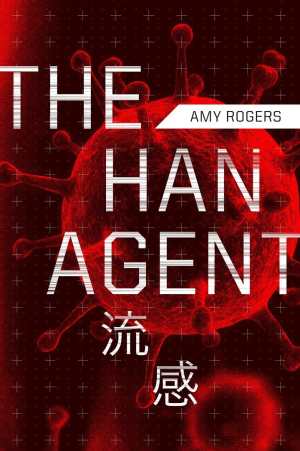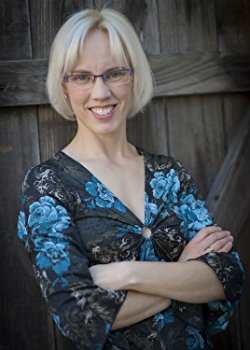Author Interview: The Han Agent
Amy Rogers, author of The Han Agent
You cover a great deal of ground in The Han Agent, from WWII history to modern DNA sequencing. How did you retain such a sharp focus in the story line?
When it comes to story material, newspapers and history books are sometimes better sources than imagination. Factually, The Han Agent is about bird flu and East Asian geopolitics and science policy, but the glue holding it all together is my main character, Amika Nakamura. She’s a young Japanese-American virus scientist who makes some questionable choices in pursuit of her professional ambitions. Because she’s book-smart, she thinks she has everything under control. Guess what: she doesn’t, and she has a rough road ahead as the blinders come off.
The Han Agent
Genre lines are crossed, but one of them might also be horror, since biological warfare gets at the heart of technological fears. Is this book meant as a warning?
The Han Agent is meant to be entertainment, but the book does bring up some scary stuff. Modern molecular biology techniques could be used to produce a “designer” biological weapon. While planning this novel I asked, who would do such a thing? Well, in the 1930s and early 1940s scientists from Japan tried very hard to. They lacked the necessary biotechnology to accomplish their goal at the time, but what if their descendants continued the effort today?
Amy Rogers
You say you write science thrillers, not science fiction. What’s the difference?
When a reader picks up one of my novels (Petroplague, Reversion, The Han Agent) they can expect a suspenseful story set in the real world of the present day. Real science and medicine underpin the plot, women scientists drive the action, and a laboratory experiment always plays a crucial role at some point. While these things are true of some sci-fi novels, for many people the label “science fiction” conjures up something more speculative.
Foreword Reviews
